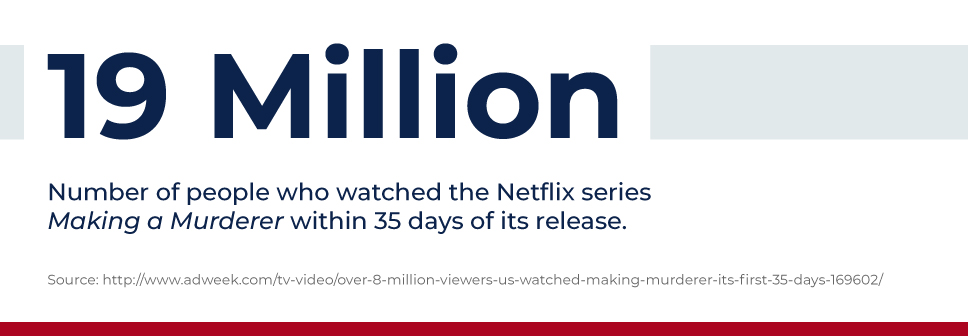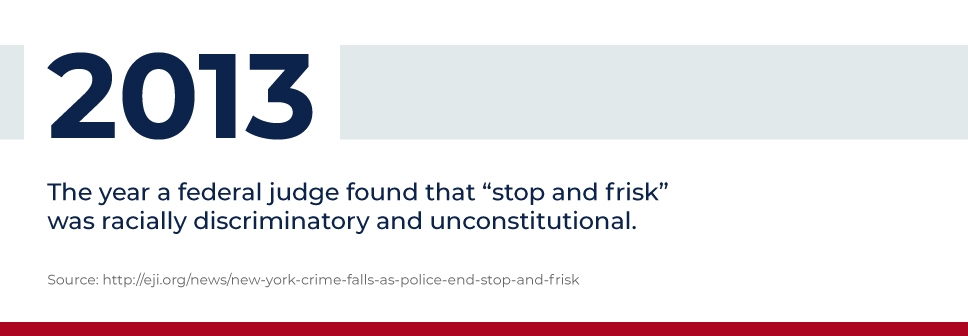Criminal profiling, also commonly referred to as offender profiling or criminal investigative analysis, is a popular, albeit controversial, topic in the criminal justice world. In short, criminal profilers are law enforcement investigators who “specialize in inductive and deductive reasoning to build a profile of a particular criminal based on characteristics of the crime committed,” according to The Balance Careers (Roufa, 2018). In addition to analyzing hard data, such as forensic reports and blood tests, criminal profilers often investigate other factors such as choice of victim, condition of the crime scene, and the timing and manner of crimes committed to developing theories about suspects’ physical traits or psychological motivations.
Rise in Popularity of Criminal Profiling
While the general practice of criminal profiling can be traced all the way back to notorious cases such as the Jack the Ripper murders in 1888, Psychology Today credits former FBI agents Howard Teten and Patrick Mullany with initiating in the 1960s and 1970s what would become the bureau’s official Behavioral Analysis Unit. One of their earliest cases involved the 1973 child abduction and murder of Susan Jaeger in Montana. After studying the case, Teten and Mallany created a criminal profile that appeared to fit 23-year-old Vietnam veteran David Meirhofer, who, at that point, was considered by other law enforcement officers to be an unlikely suspect. Meirhofer killed again, and officials were able to confirm upon further investigation that he was, in fact, responsible for Jaeger’s disappearance and death (Ramsland, 2014).

In years since, criminal profiling has become widely publicized, not only because of its prevalence in real and disturbing criminal cases of serial killers like Ted Bundy and Jeffrey Dahmer, but also as a result of its fictional depiction in entertainment media. With the increased popularity of movies and serial shows like The Silence of the Lambs, Criminal Minds, and Making a Murderer, not to mention the rise of the anti-hero character archetype (think Tony Soprano or Walter White), audiences have become enthralled with the psychological complexities of criminal behavior. Even “true crime” television and podcast series have spawned an entire population of passionately engaged armchair detectives.
The Emergence of a Criminal Profiling Controversy
Despite the glamorization of criminal profiling, many experts seriously question its scientific and ethical validity. In 2010, a team of Birmingham City University psychologists, including Professor Craig Jackson, published a report criticizing the practice (Jackson, Wilson Kaur, 2010). Jackson argued that “behavioral profiling has never led to the direct apprehension of a serial killer, a murderer, or a spree killer, so it seems to have no real-world value” (Sample, 2010).
The practice of racial and cultural profiling is also fiercely refuted by many academics, law enforcement professionals, and social justice advocates. According to the American Civil Liberties Union, the practice has led “countless people to live in fear, casting entire communities as suspect simply because of what they look like, where they come from, or what religion they adhere to” (“Racial Profiling,” n.d.).

One can look to the New York Police Department’s now-abandoned “stop and frisk” policy for an example of the troublesome realities of this issue. According to a 2013 report from the New York City Bar Association, these suspicion-based stops, which totaled 685,724 at their peak in 2011, resulted in just 6% arrests and only 2% recovered weapons. Furthermore, 85% of those stopped were overwhelmingly black and Latino males. In addition to raising legitimate questions of efficacy and civil rights violations, the policy “engendered distrust in the affected communities” between residents and police officers (“Report on the NYPD’s Stop-And-Frisk Policy,” 2013).
Addressing the Challenge of Criminal Profiling Through Education
From post-September 11th Islamophobia and the border wall debate, Jim Crow segregation and the Black Lives Matter movement or Japanese internment camps to migrant caravans, the subject of criminal profiling extends far beyond society’s obsession with serial killer psyche and reaches into the dark places where our own fear, ignorance, and prejudice lives (Goody, 2006). It plays a huge role in some of the most divisive topics of our era, and as such, it is a popular field of study that could benefit from more debate, scientific analysis, and social consciousness.
The University of Arizona Global Campus criminal justice programs address this complicated subject head-on, particularly in CRJ 308 Psychology of Criminal Behavior (within the Bachelor of Arts in Social and Criminal Justice program) and CRJ 522 Psychological Factors in Criminal Justice (within the Master of Science in Criminal Justice program). Led by Program Chair Shari Schwartz, these courses explore the intersection of psychology and the criminal justice system, incorporating statistical findings and current events to study the validity of criminal profiling. Want to learn more? Contact an Advisor to “investigate” if the program is right for you.
--
References:
Roufa, T. (2018) Criminal Profiling: Career Information. The Balance Careers. https://www.liveabout.com/criminal-profiling-career-information-974482
Ramsland, K. (2014) Criminal Profiling: How it All Began. Psychology Today.
https://www.psychologytoday.com/us/blog/shadow-boxing/201403/criminal-profiling-how-it-all-began
Guy, F. (2018) Robert Ressler: Psychological Profiling of Serial Killers. Crime Traveller. https://www.crimetraveller.org/2016/03/robert-ressler-psychological-profiling/
Jackson, C., Wilson D., Kaur Rana B. (2010) The Usefulness of Criminal Profiling. Criminal Justice Matters 84. 6-7. 10.1080/09627251.2011.576014. Retrieved from https://www.researchgate.net/publication/233430185_The_usefulness_of_criminal_profiling
Sample, I. (2010) Psychological profiling ‘worse than useless.’ The Guardian. https://www.theguardian.com/science/2010/sep/14/psychological-profile-behavioural-psychology
Racial Profiling. (n.d.). Retrieved from https://www.aclu.org/issues/racial-justice/race-and-criminal-justice/racial-profiling
Report on the NYPD’s Stop-And-Frisk Policy. New York City Bar. (2013).
https://www2.nycbar.org/pdf/report/uploads/20072495-StopFriskReport.pdf
